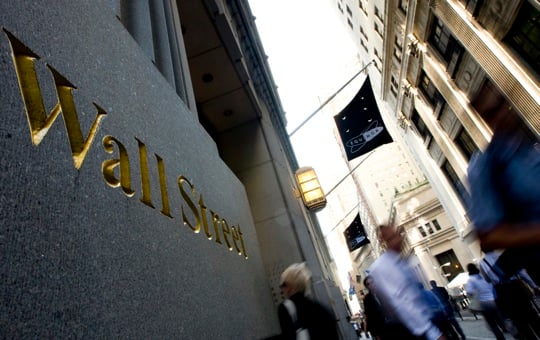In the next crisis, the roles of Fannie Mae and Freddy Mac will be played by financial services giants
Jamie Dimon, chief executive officer of JPMorgan Chase & Co., has harsh words for Fannie Mae and Freddie Mac. They are “the biggest disasters of all time,” Dimon told the Financial Crisis Inquiry Commission last fall, according to his just-released interview.
Along with others, Dimon greatly exaggerates the role Fannie and Freddie played in the financial crisis, a theme my MIT colleague, Daron Acemoglu, has written about with great clarity.
Too many bankers assert some version of the refrain: Fannie Mae made me do it. As the FCIC's report makes clear, it was the private sector that led us into the financial crisis by making massive subprime bets and then using complex derivatives deals to magnify the downside risks.
Nevertheless, Dimon makes a good point in the sense that Fannie and Freddie became too powerful politically, had too little equity relative to their debt levels and took on reckless amounts of risk. They blew themselves up at great cost to taxpayers.
Who are the government sponsored enterprises today? Which entities are too big to fail, in the eyes of lawmakers and regulators, and therefore are receiving implicit, no-cost government guarantees?
The answer is our largest bank holding companies such as JPMorgan, the second-biggest U.S. bank in terms of assets behind Bank of America Corp. This point is made in the latest quarterly report from Neil Barofsky, the special inspector-general for the Troubled Asset Relief Program.
Flawed Metrics
Who has an incentive to increase debt relative to equity in really big ways? Again, it's the largest banks. The executives in these companies are paid based on their return on equity -- and the easiest way to increase that is to add leverage. Of course, this increases returns only when times are good. It also increases the potential losses when markets tumble. In other words, greater leverage increases risk.
But the global executives who congregated at Davos, Switzerland, a few weeks ago were uniformly optimistic, and further encouraged by cheerleading from Dimon and his financial industry colleagues.
The government's best intentions notwithstanding, there is no way bank executives will ever be compensated on a properly risk-adjusted basis. In fact, research by economists Sanjai Bhagat and Brian Bolton shows that top private-sector bankers know when to cash out: before all the suckers get crushed. And it is cash that bank CEOs get -- the chief executives of the 14 largest U.S. financial companies received cash inflow worth $2.6 billion between 2000 and 2008.
High Leverage
If shareholders are protected from being wiped out by the implicit too-big-to-fail guarantee, they should welcome the arrival of additional leverage as the economy improves. In fact, as the latest quarterly earnings results appear, the financial press has started to ask Goldman Sachs Group Inc. and other banks why they don't increase their leverage even more.
Top bankers are also pressing hard for the right to increase dividend payments. That's effectively a transfer from creditors and taxpayers tomorrow (because of the guarantee) to shareholders today.
Dimon also wants JPMorgan to become more global, especially by expanding more into emerging markets. U.S. Treasury Secretary Timothy Geithner endorsed this approach in an interview he gave to the New Republic, effectively arguing that we should want big, highly leveraged U.S. banks to make large bets on highly volatile emerging markets.
With Geithner firmly entrenched at the Treasury Department and with Bill Daley, former senior lobbyist at JPMorgan, now Barack Obama's chief of staff, Dimon has all the political cover he needs.
No Progess
Dimon himself has argued that we can't deal with too-big- to-fail until we have a way to manage the orderly liquidation of big banks. Yet even with the Dodd-Frank overhaul enacted, we still have no process for handling the failure of a big cross- border bank like JPMorgan.
There is no framework -- either through the courts or directly between governments -- to deal with such a collapse, other than through a Lehman-type bankruptcy. So when a big bank next gets into trouble, the choice will be between allowing a meltdown, with presumably awful financial consequences, and providing a bailout, which can have big fiscal impact.
Cautionary Tale
Recent experiences in Ireland should warn us all against the we'll-do-a-bailout-when-needed approach advocated by Geithner. Three big banks built up a combined balance sheet worth about two times Ireland's gross domestic product. They speculated heavily in commercial real estate, financed by borrowing from others in the euro zone. The failure and resulting bailout ruined the fiscal solvency of the Irish government and forced officials to ask for a rescue led by the International Monetary Fund.
As Dimon told the FCIC in October 2010, referring to Fannie and Freddie: “That one was an accident waiting to happen,” and “We all knew about it, we all worried about it, no one did anything about it.” He will probably say the same thing after the next crisis involving government-sponsored enterprise -- but next time the term will refer the likes of Goldman Sachs, Bank of America, Citigroup Inc., Wells Fargo & Co., Morgan Stanley and his own JPMorgan.
(Simon Johnson, co-author of “13 Bankers: The Wall Street Takeover and the Next Financial Meltdown” and a professor at MIT's Sloan School of Management, is a Bloomberg News columnist. The opinions expressed are his own.)







